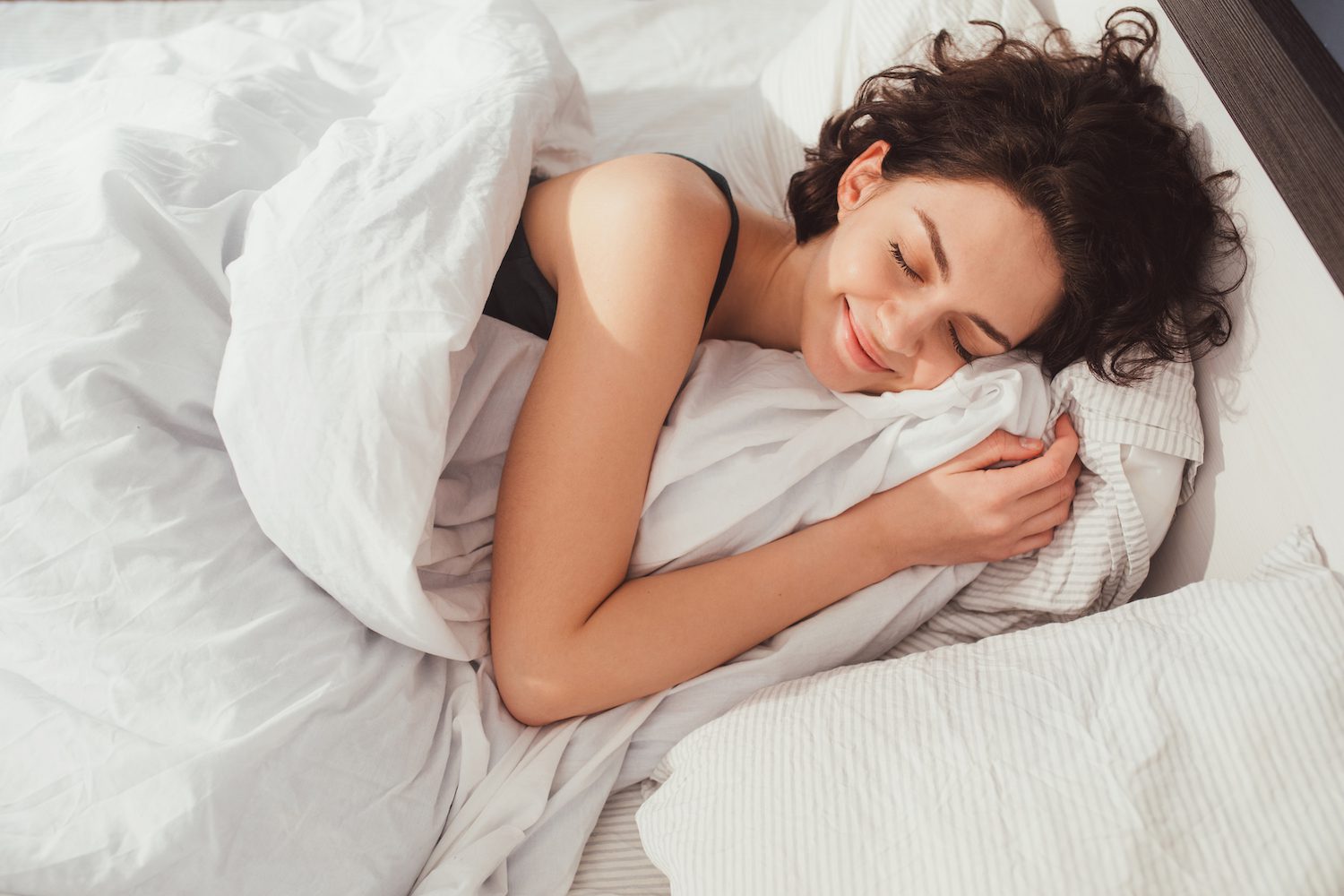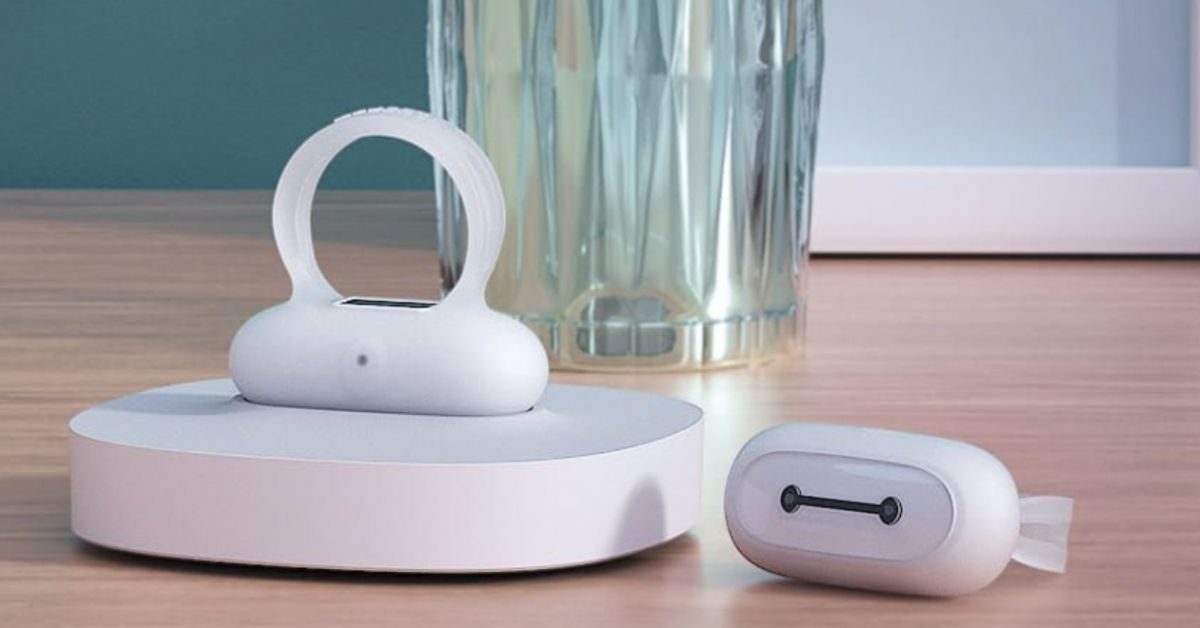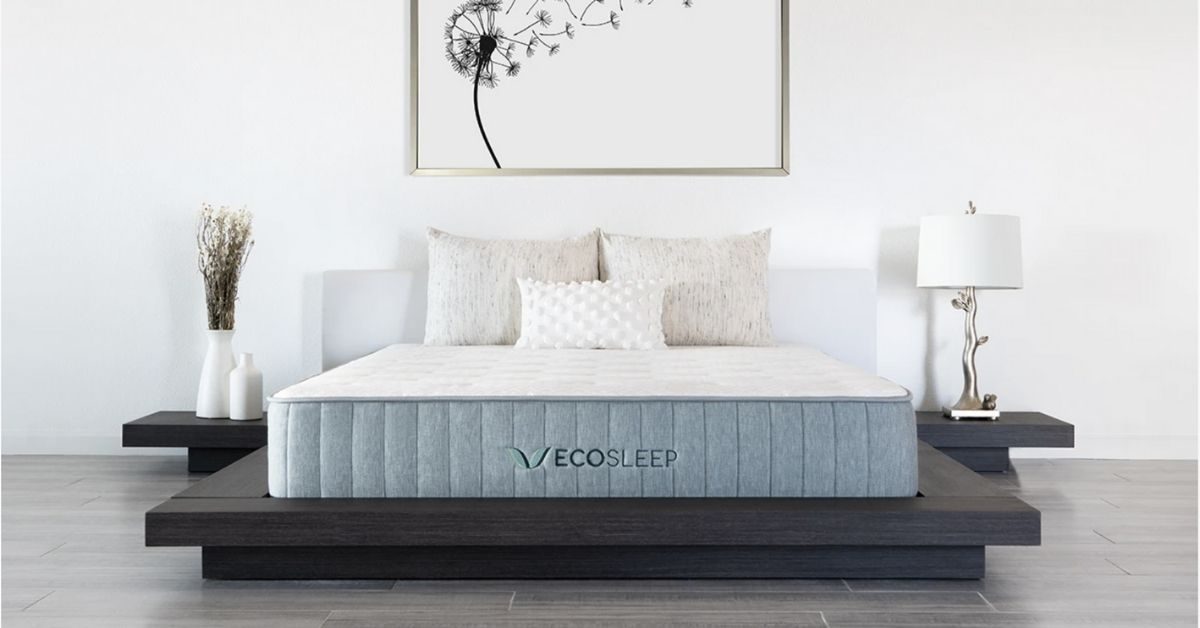It doesn’t matter how many hours of sleep you’re getting if those hours are fitful. If you’re waking up feeling tired or experiencing daytime sleepiness, learning tactics to improve quality of sleep will seriously help.
The problem is that sleep complaints such as poor sleep efficiency, constant nighttime awakenings, and bad dreams can have detrimental effects on your sleep quality.
While you may try heading to bed earlier and earlier, this isn’t always the answer. If you’re getting no improvement in sleep quality, you’re still going to feel exhausted.
Try these tactics to tackle your sleep quality issues so you can wake up feeling more refreshed.
(Note. While we earn commission from the links in this article, we only recommend the products we truly believe will improve your sleep the most. These commissions come at no extra expense to you and help us to keep providing you with expert sleep information for free.)
How to Measure Sleep Quality
Without a doubt, a sleep study in a sleep lab is the best way to measure sleep quality. However, not everyone has the funds or access to such facilities.
The second best method is with a sleep tracker, such as Go2Sleep by SleepOn.
The sleep tracker monitors your heart rate and blood oxygen levels.
While your heart rate will show you periods of restlessness, a drop in blood oxygen levels can signify other issues such as sleep apnea.
You can use the app to look at your daily sleep reports to see patterns in sleep quality over time.
8 Tried-and-True Tactics to Improve Quality of Sleep According to Science
Tired of poor sleep quality and sleep disturbances? Dream of getting healthy sleep every time you head off to bed at sleep time?
Try these tactics to help you get better quality sleep at night.
1. Set up your bedroom environment for sleep
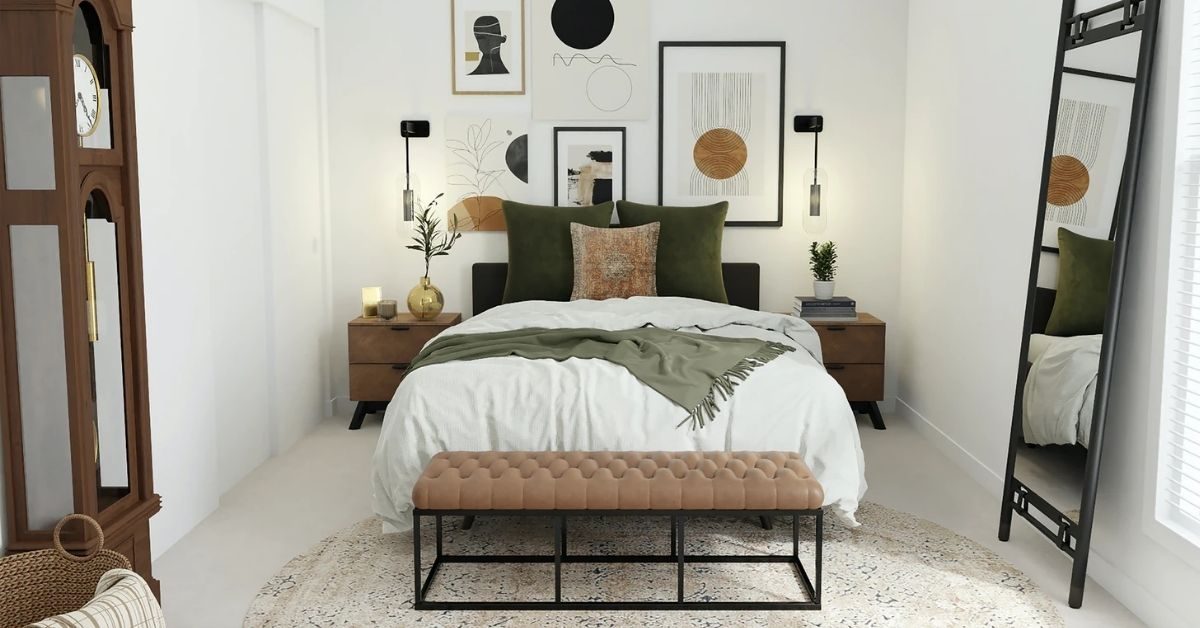
Knowing how to make your bedroom better for sleeping is the first step to higher quality sleep at night.
If you suffer from chronic insomnia or poor sleep quality, the likelihood is that your bedroom environment isn’t geared toward sleep efficiency. Fixing your bedroom environment can prove to be a quick and easy treatment of insomnia that help ease sleep onset latency and leads to an improved sleep quality
First off, make sure you’re sleeping at the correct bedroom temperature.
According to sleep psychologist Michelle Drerup,
“Typically it is suggested that the temperature in the bedroom for adults should be between 60 and 67 degrees Fahrenheit for optimal sleep. Your body temperature decreases as part of the sleep initiation process, and this range of temperature is thought to actually help facilitate this decrease.”
If your room feels too hot, you should try the Moona Active Cooling Pillow Pad.
Beyond bedroom temperature, think about blocking out any light and sound to avoid any sleep disruptions.
Also, try picking comfortable bedding. Lots of people who suffer from sleep issues like to use a weighted blanket. Medical experts agree that weighted blankets offer calming effects as they encourage your body to release the same chemicals you release when you hug someone.
Lastly, consider adding a calming scent to the room.
Studies show that lavender essential oil can have sedative properties when inhaled. Try creating a lavender sleep spray to mist your room with the soothing scent of lavender. Simply drop a few drops of lavender essential oil into a bottle with 2-3 ounces of vodka and fill it up with distilled water.
2. Keep a consistent sleep schedule
A previous study showed that an inconsistent bedtime can have significant adverse effects on subjective sleep quality, which leads to tiredness in daily life.
Going to bed at different times each night confuses the internal clock, making it hard for your body to know when it’s sleep time.
When you have a consistent bedtime every night, the internal clock begins to recognize the patterns and releases the sleep hormone, melatonin. This helps you feel tired at the same time each night.
While your bedtime is your personal preference, you need to make sure you’re getting around seven hours of sleep.
As Dr. David F. Dinges, Professor and Chief of the Division of Sleep and Chronobiology in the Department of Psychiatry at the University of Pennsylvania Perelman School of Medicine, explains,
“When duration of sleep drops below seven hours, and especially when it starts to move toward six and half hours or less, a number of different disorders begin to increase in prevalence. Most experts would agree that there is a kind of sweet spot that most people should aim for, and for the average healthy adult that zone is ideally somewhere between 7 and 7 and a half hours.”
In other words, you need to plan your bedtime so that you get enough sleep otherwise you open the door to a range of sleep disorders that decrease your quality of life.
Instead, tackle poor sleep quality by heading to bed at the same time every night, including on weekends.
3. Reduce late-night light exposure

Light plays a huge role in sleep. Your body runs on a system called the circadian rhythm. This internal clock controls the regulation of hormones that trigger sleep and waking up. This regulatory system is heavily influenced by light exposure.
When the body senses light, it doesn’t release melatonin.
This means that if you’re exposing yourself to bright light in the hours before bed, you’re likely to feel less tired.
The problem is that blue light has this effect on the body. As blue light is emitted from so many devices, it can seriously impact sleep parameters. Late-night electronic device use is one of the biggest factors exacerbating problems for adults with sleep issues.
If you want improvements in your sleep quality, you’ll need to turn off your electronic devices earlier in the evening — it’s the 101 of sleep hygiene education. This will help boost sleep efficiency and cut back on sleep onset latency.
Also, you need to make sure your bedroom isn’t letting light in otherwise this can affect your sleep quantity. Early morning natural light coming through the curtains can wake up earlier. Even if this is just a few minutes per day, this can begin to cause sleep-related daytime impairment where you’re excessively tired from a reduced sleep quantity.
4. Get a good mattress
Most cheap mattresses are horrible for your back and won’t even last a year. Good mattresses are much better for you but should still be replaced every five to eight years.
According to The Better Sleep Council, it’s best to replace your mattress once every seven years.
It’s not just that a comfortable mattress will help your quality of sleep, it will also have positive effects on your quality of life.
As Dr. Pixie Mckenna explains,
“With more of us increasingly spending a large proportion of our time in bed, relaxing, unwinding or taking on bed-bound activities, it’s never been more important to find the right mattress to support you fully and prevent any discomfort. “
A good mattress helps to relieve discomfort and pain when you sleep, leading to improved sleep quality and sleep depth. You’ll experience higher sleep efficiency and fewer disturbances.
In fact, one cross-sectional study showed that the surface you sleep on can seriously impact the levels of chronic pain you feel. Adults with insomnia that experience back or muscular pain should consider a new mattress immediately if they want more healthy sleep.
If you’re looking for a highly breathable mattress with great airflow and top comfort, try the Ecosleep Hybrid.
5. Keep an eye on nutrition

Self-reported sleep issues are more common in people who are overweight.
As the National Sleep Foundation explains,
“People who are obese are more likely to report insomnia or trouble sleeping than those who are not obese. There is also evidence to suggest that obesity is associated with increased daytime sleepiness and fatigue.”
The problem is that the daytime sleepiness from obesity-related secondary insomnia can cause serious daytime dysfunction as well as having adverse effects on health.
Since the prevalence of sleep conditions is so high in people with obesity, it seems obvious that a good treatment of insomnia would be to keep an eye on your nutrition to avoid becoming overweight or to reduce your weight if you’re already obese.
However, whether you’re overweight or not, your diet should be a top consideration if you’re suffering from sleep complaints considering it has one of the biggest effects on sleep.
Not only should you avoid caffeinated beverages in the hours before bed, but you should also cut out late-night sugary foods as these stimulate the brain.
The other thing to consider is how late you eat as big meals before bed can decrease subjective sleep quality.
As nutritionist and founder of Real Nutrition, Amy Shapiro, explains,
“Eating a full meal late at night right before going to bed can be harmful, as it can cause heartburn, weight gain, and may disrupt sleep.”
For improvements in sleep quality and insomnia, eat a healthier diet and avoid eating too close to bedtime.
If you get a little snacky in the hours before bed, you can always try one of these healthy bedtime snacks that don’t interrupt your sleep patterns.
6. Increase your physical activity level in your daily life

If you’re suffering from self-reported sleep issues and you’re a non-physical activity-type person, it’s time to make a change.
People with sleep complaints like chronic insomnia need to increase their daily physical activity to help improve energy expenditure. In other words, you need to tire yourself out more before sleep time.
Sleep Foundation clearly outlines the impact of exercise on sleep, explaining that,
“The relationship between exercise and sleep has been extensively investigated over the years. Previous studies have noted that proper exercise can alleviate sleep-related problems and help you get an adequate amount of rest.”
A recent study showed that moderate to intense aerobic exercise three times per week is the best exercise intervention for patients with sleep conditions. This kind of regular exercise has drastic outcomes on patients with insomnia and other sleep disorders, such as an improvement in sleep depth, sleep quantity, and sleep onset latency.
Not only that, but recent research by the American Academy of Sleep Medicine also shows that sleep apnea patients who increase their physical activity level see improvements in their condition.
If you’re looking to add an exercise intervention into your life, but you feel like aerobic exercise isn’t for you, try adding a ten-minute walk into your day to increase your physical activity level. You’ll still get the positive effects of exercise without getting overwhelmed by a big workout.
Be aware that the effect of exercise on sleep may change depending on the time of day that you’re partaking in physical activity.
While some studies show that late-night energy expenditure can help sleep onset latency, others say to avoid high-intensity physical exercise late in the day.
As Sleep Foundation puts it,
“Traditional sleep hygiene dictates that intensive exercise9 during the three-hour period leading up to sleep can negatively impact sleep10 because it can increase your heart rate, body temperature, and adrenaline levels.”
To be safe, try to stick to intense physical activity in the morning time. After all, a recent study shows that the best effects of exercise on sleep and chronic insomnia come from early morning physical exercise.
7. Try Cognitive Behavioral Therapy
According to Dr. Clete Kushida,
“If a person has been diagnosed with chronic insomnia, the only treatment that has been shown to have long-term benefit is cognitive behavioral therapy.”
Studies show that cognitive behavioral therapy and mindfulness-based cognitive therapy are exceptionally helpful to improving the quality of sleep in patients with anxiety issues and stress-related sleep disorders.
If you feel like you’d like an alternative to drug therapy, you should talk to your doctor about mindfulness-based cognitive therapy and cognitive behavioral therapy.
8. Try mindfulness awareness practices and meditation for sleep
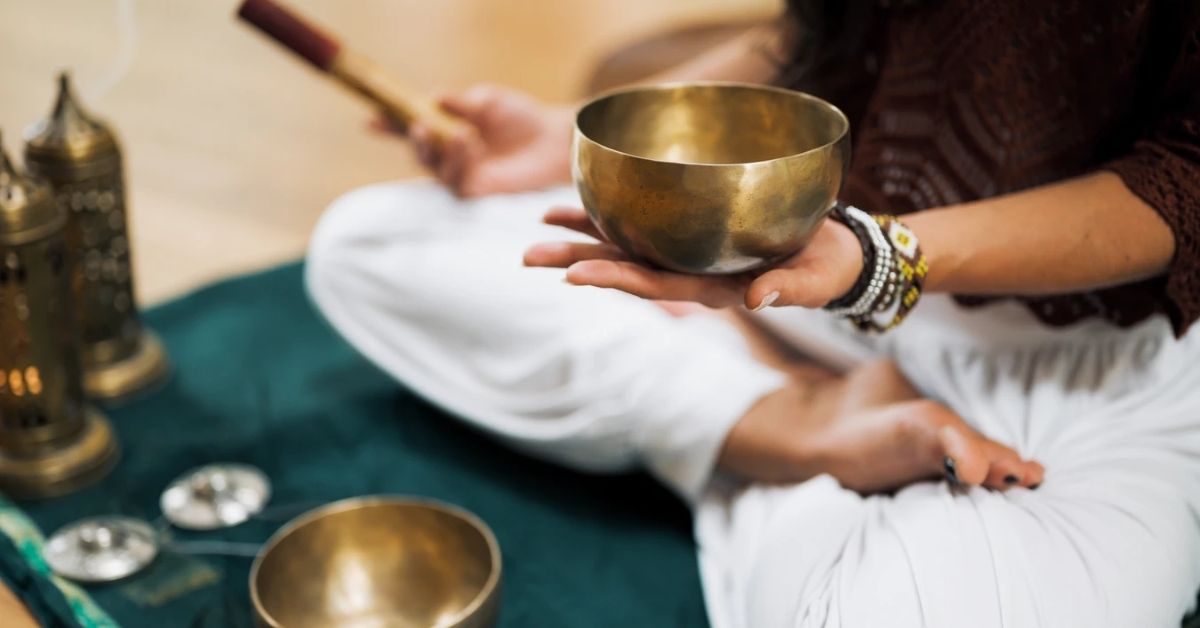
The positive effects of meditation on sleep quality cannot be overstated.
One of the top evidence-based sleep treatments, studies show that the impacts of meditation on sleep are far-reaching, improving quality of sleep and cutting back on sleep disturbances throughout the night.
Not only do mindfulness awareness practices help improve sleep depth and sleep efficiency throughout the night, but they also help to relieve anxiety in the evening. This helps you drift off faster while also improving your all-around quality of life. In fact, you can use your meditation practice at any time of the day to reduce stress and anxiety.
A yoga teacher and energy healer, Jo Hamilton, explains, meditation and mindfulness awareness practices can have all-around effects on your quality of life as well as your sleep patterns.
“It is deeply relaxing, safe and nurturing. Practitioners say that it often brings immediate physical benefits, such as reduced stress and better sleep, and that it has the potential to heal psychological wounds. As a meditation practice, it can offer a profound sense of peace and well-being.
National Sleep Foundation explains that the impact mindfulness awareness practices and meditation on sleep and primary insomnia can be compared to the effects of sleep medication,
“Research suggests that various types of meditation can help improve insomnia, and may even improve sleep quality for those without existing sleep problems. Mindfulness meditation, in particular, appears to improve sleep quality and reduce daytime disturbance in people with chronic insomnia and older adults. In the long term, these improvements may be comparable to effects seen from sleep medication or other established methods for insomnia treatment.”
If you’re looking to improve your quality of sleep but don’t want to take medication, try meditation instead. Try these resources if you need a sleep meditation video to guide you.
Final Thoughts
Poor sleep quality doesn’t have to dictate your life. In fact, if you keep on, you’ll experience significant cognitive impairment in the daytime, as well as an overall decrease in your quality of life and happiness levels.
While your poor sleep efficiency may be caused by an underlying condition, start by making a few tweaks to your bedroom environment to see whether these physical factors are hampering your sleep. Try the Moona Active Cooling Pillow Pad to lower your temperature, as well as lavender oil to help aid sleep.
If you’re really suffering and you feel like you need to speak to a medical professional, talk to your doctor about cognitive behavioral therapy as an alternative to medicinal treatments.

Welcome to Snoozerville! I’m Dr. Alex Hartley, your guide to the world of restful sleep. With a Ph.D. in Sleep Science and years of experience as a sleep therapist, I’ve dedicated my life to understanding and improving sleep quality. My passion lies in uncovering the mysteries of sleep and sharing practical, science-backed advice to help you achieve the best rest possible. Beyond my academic pursuits, I’m an advocate for mindfulness and relaxation techniques, which I incorporate into my daily routine. At Snoozerville, I aim to transform your nights, combining the latest research with easy-to-implement tips. Whether you’re a chronic insomniac or just looking to improve your sleep hygiene, join me on this journey towards peaceful, rejuvenating sleep.

